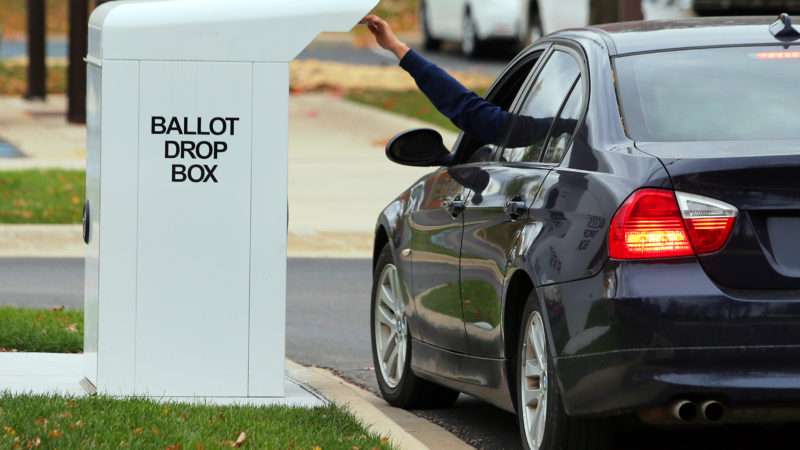–3/5/20–
@Clerk: DeRay McKesson, Black Lives Matter leader, filed petition for writ of cert. Divided CA5 panel held he negligently staged a protest, in which an officer was injured. The First Amendment did not provide a dissent. J. Willett dissented.
–6/17/20–
@BigRed: Did you really intend to write such a broad opinion in Bostock?
@RobeNotCapes: Intent is irrelevant Clarence. All that matters are the specific words I deliberately chose to express my personal beliefs.
@PhilliesFan: I can think of some four-letter words right now….
@TheChief: Just wait till my DACA opinion tomorrow. I have been committed to this position for months. No flip-flopping from me.
@BeachWeek: We know, John. You haven’t changed your mind. Happy Blue June everyone.
@Clerk: Briefing is completed in McKesson v. Doe. Case will be distributed for long conference on September 29.
[Private Group Chat: Ruth’s Troops]
@RBG: What do you all think about the BLM case? If we push for cert, will Neal join us?
@TheRealChief: Absolutely, Ruth. And we may get the Chief as well.
@MyBelovedWorld: I don’t know, Elena. He may not be down for BLM. Race matters, after all.
@BreyerPager: I think this case is important enough to take. Let’s see what happens.We have four.
[/end Private Group Chat: Ruth’s Troops]
—
9/18/20
[Private Group Chat: Elena’s Angels]
@BreyerPager: Now we have three votes.
@TheRealChief: I got this, Steve.
[/End Group Chat]
—
9/29/20
@TheChief: Happy long conference everyone. Welcome back.
…
@TheChief: Now we turn to 19-1108, McKesson v. Doe. Any interest?
@TheRealChief: We have three votes to grant. Anyone want to give a courtesy fourth? Neal?
@RobesNotCapes: Nope, I’ll pass. Still stinging from Bostock.
@TheRealChief: Anyone? No? Come on, Don Willett dissented. Remember how funny his Twitter was?
@TheChief: I muted him a long time ago. Elena, would you like to prepare a dissent from denial of certiorari?
@TheRealChief: Hold on. I thought of a novel way to punt on a controversial issue: Let’s certify the case to the Louisiana Supreme Court!
@BigRed: Has the Supreme Court ever issued a certification order before certiorari was granted?
@TheRealChief: Well, I found one case from 1963. We certified a question to the Supreme Court of Florida from the shadow docket.
@BigRed: Is that it? That precedent is not really helpful.
@TheRealChief: Well, I have another idea. In a 1974 case, after argument, we remanded a case to the old Fifth Circuit to “reconsider whether the controlling issue of Florida law should be certified to the Florida Supreme Court.” Let’s do that again!
@TheChief: Now I am intrigued. What would that order look like?
@TheRealChief: Just spitballing here. How about, “We therefore grant the petition for writ of certiorari, vacate the judgment of the United States Court of Appeals for the Fifth Circuit, and remand the case to that court for further proceedings consistent with this opinion.”
@BigRed: So we strongly suggest the Fifth Circuit certify, without actually telling the panel to certify?
@TheChief: It’s perfect. I join.
@RobesNotCapes: Works for me. Certification is very federalist-y.
@BigRed: I dissent. This remand is a waste of time. Let’s deny cert on this case already.
–11/2/20–
@Clerk: Order issued in McKesson v. Doe.
@MyBelovedWorld: Excellent punt, Elena. This case will come back to us in about 2 years after Court expansion.
@BreyerPager: I won’t be here for it. I will be announcing my retirement as soon as Biden is sworn in. Polls looking good! Now because of the rigors of Article III standing, Texas may finally turn blue.
@TheChief: WTF!?
@BeachWeek: Oh come on.
@RobesNotCapes: Tell us what you really think.
@BigRed: Was that message meant for all of us?
@MyBelovedWorld: I’m sorry, chief, did it again. Those messages were supposed to be for our private group chat. Sorry everyone.
@TheChief: You have a private group chat?! Article III says there is “one Supreme Court.” One. That means “one group chat.” You aren’t allowed to have private group chats. That basically violates Article III.
@TheRealChief: It’s not so bad. It’s like having panels on the Supreme Court. You know, maybe we should look into cases where only a panel of us decides a case. Think of how much easier things would be if there were more than nine of us to spread the work around.
@TheChief: You know, I really don’t appreciate this incessant court-packing chatter.
@GoIrish: Everyone ready for the election tomorrow!
@TheChief: This chat is closed.
—
from Latest – Reason.com https://ift.tt/2GpYDKk
via IFTTT



